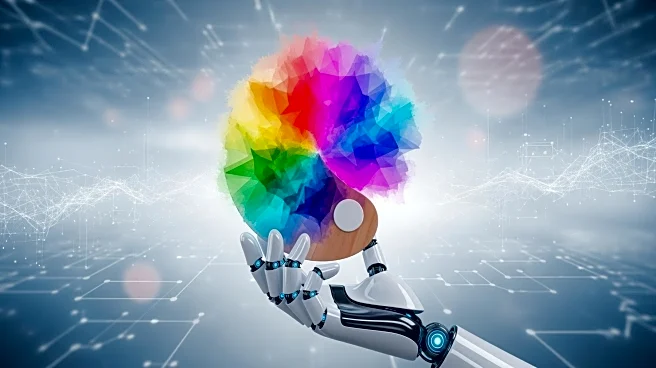What's Happening?
OpenAI, a leading company in generative AI, has partnered with Tower 28, a human agency, to ensure its campaigns resonate culturally across different markets. Tower 28, founded by Kelsey Cross and Erin
Toerner, operates as a distributed network that leverages a global freelance community to deliver culturally nuanced campaigns. This collaboration highlights the continued importance of human creativity in an AI-driven world, as OpenAI seeks to maintain cultural relevance in its marketing efforts. Tower 28's model, which resembles a film studio's production slate, allows for agile and culturally sensitive campaign execution, contrasting with traditional agency models that rely on large, permanent staff.
Why It's Important?
The partnership between OpenAI and Tower 28 underscores the limitations of AI in understanding cultural nuances, emphasizing the need for human involvement in creative processes. This collaboration could influence the advertising industry by demonstrating the value of flexible, culturally aware campaign strategies over traditional, scale-driven models. As AI continues to evolve, agencies that can integrate AI without losing their cultural edge may gain a competitive advantage. This development also reflects broader industry trends, where companies are increasingly seeking agile solutions to meet the demands of global markets.
What's Next?
Tower 28's approach may inspire other agencies to adopt similar models, focusing on cultural sensitivity and agility. As OpenAI expands its scope to include market-originated creative work, the demand for localized expertise is likely to grow. This could lead to more collaborations between tech companies and agencies that prioritize cultural nuance. Additionally, the advertising industry may see a shift towards smaller, more flexible networks that can quickly adapt to changing market conditions, potentially challenging the dominance of traditional holding companies.
Beyond the Headlines
The collaboration between OpenAI and Tower 28 raises questions about the future of creativity in an AI-driven world. While AI can accelerate certain processes, it cannot replace the human ability to understand and navigate cultural contexts. This partnership highlights the ethical considerations of relying solely on AI for creative work, as cultural missteps can have significant repercussions. The success of Tower 28's model may encourage a reevaluation of agency structures, promoting a balance between technological innovation and human insight.











